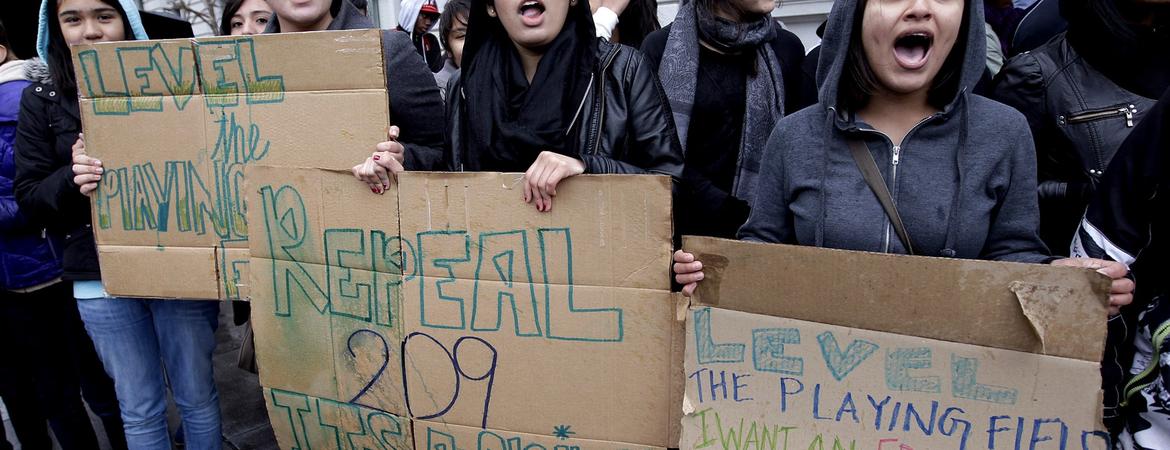Center for Social Innovation

The November election has yet again thrust the Asian American community into the middle of a contentious affirmative action fight. This time, it's in California, with Proposition 16, a statewide ballot measure that would restore race-conscious decision-making in public education admissions, employment and contracting — practices that were banned in 1996.
The initiative has won the backing of more than 100 prominent Asian organizations, including the California API Legislative Caucus and Asian Americans Advancing Justice. But it's also facing stiff resistance from some parents who fear it would diminish their children's chances of getting into top-tier University of California schools, such as Berkeley and UCLA, even though the system accepts more Asian applicants than those from any other racial group.
The attention on elite schools — as with the battle over admissions policies at Harvard University and New York City's specialized high schools — obscures the fact that most Asian Americans and Pacific Islanders don't attend such institutions. Nearly half of California's AAPI students — more than a quarter-million people — begin their freshman years at one of the state's 115 community colleges. (Asians account for about 11 percent of community college enrollment, which is comparable to their share of the state's population. By contrast, they're vastly overrepresented in the University of California system.)